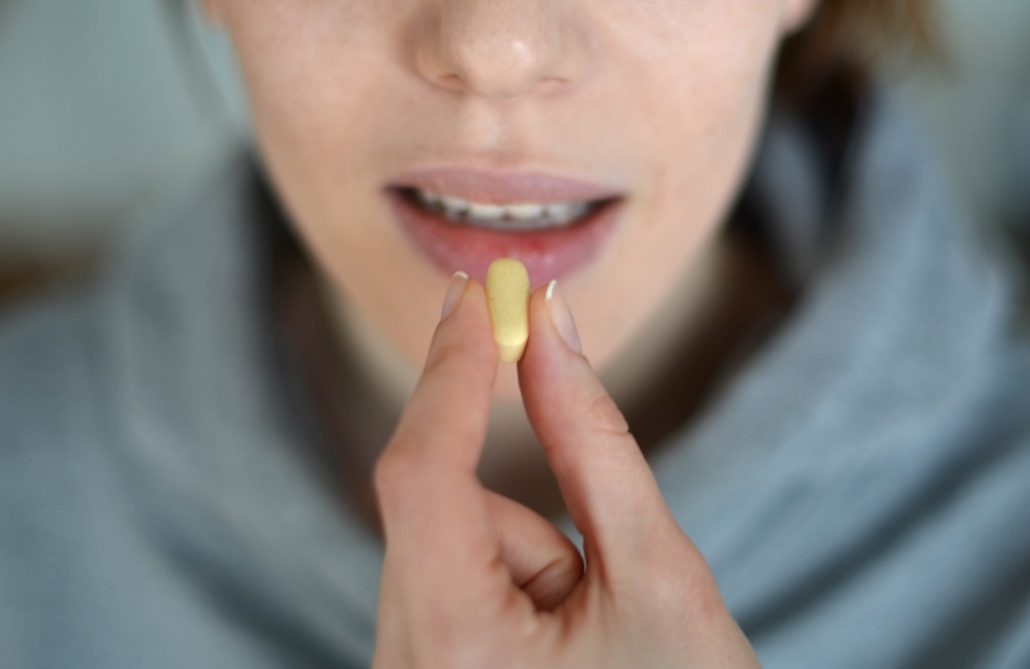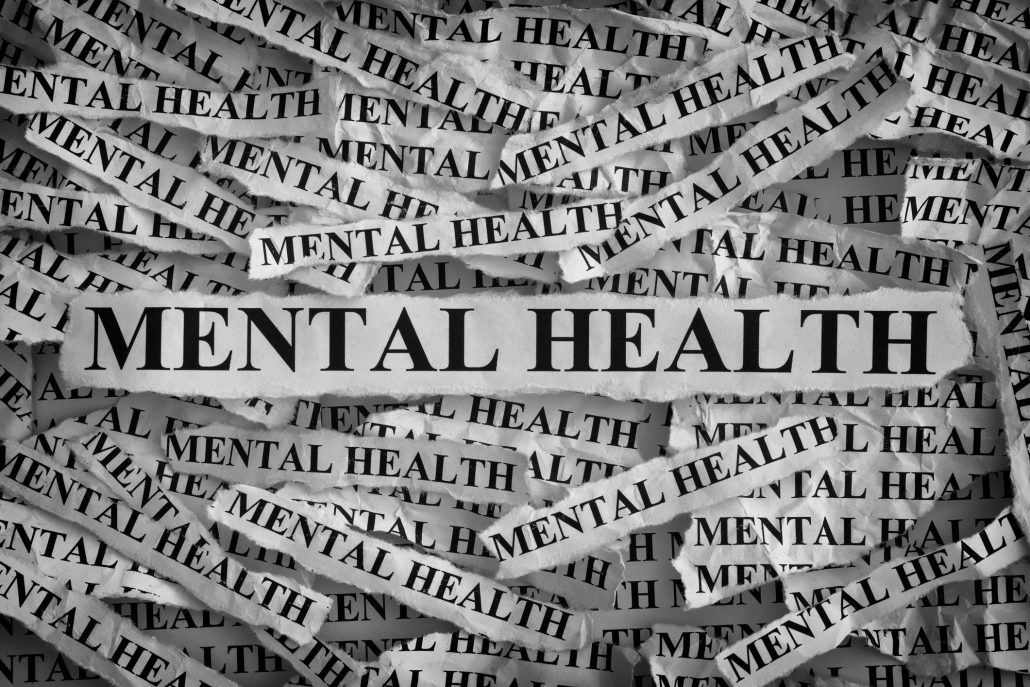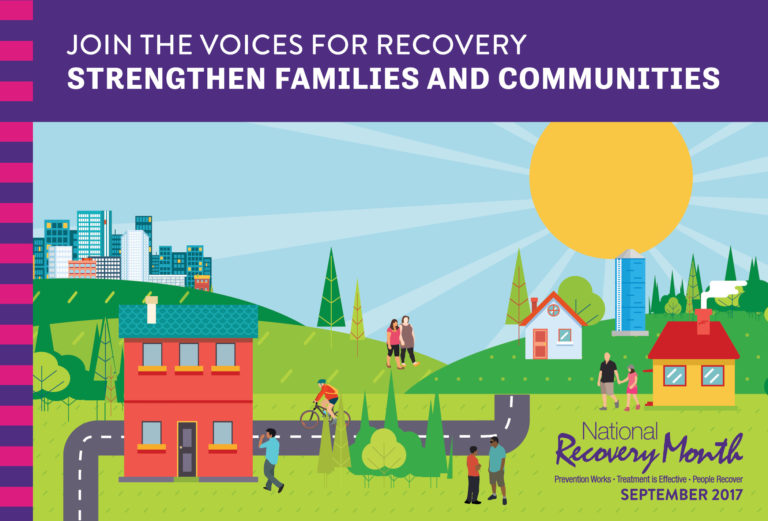by staff | Nov 24, 2017 | Addiction Medicine, Addiction Treatment, Maintenance Drugs, Medication-Assisted Treatment, Methadone, Prescription Drugs, Recovery, Suboxone, Vivitrol

Support for Medication-Assisted Treatment (MAT) has continued to grow in recent years as the opioid epidemic in America has put a mounting strain on the country. While the numbers of overdoses and opioid-related deaths have steadily climbed to devastating heights there has been more effort to explore treatment options. A better understanding of the medical and mental health aspects of addiction has become a priority. Stigma has slowly begun to carry less weight while advocates push for more effective and supportive routes to care for recovering addicts. One thing people have turned to heavily is medications like Suboxone of Methadone in attempts to steer away from more illicit and dangerous substances like heroin or fentanyl.
The application of medication in treatment can be very useful. It is a strategy that can help with the preservation of life by helping people stay off more unpredictable and life-threatening substances. However, some would say that if used for long-term this form of treatment is still relying on the idea of substitution. Often times these drugs have their own very harsh withdrawal symptoms, especially with extended use.
Taking a look at the more popular drugs used for medication-assisted treatment, one may ask- can you quit medication-assisted treatment with no withdrawals?
Understanding Medication-Assisted Treatment
Medication Assisted Treatment is the use of anti-craving medications to try and help address issues related to drug dependence, withdrawal, and relapse. The more common medications used in MAT include:
But MAT is also utilized alongside comprehensive therapy and other forms of support. Experts and advocates for addiction recovery, including the Substance Abuse and Mental Health Services Administration (SAMHSA), insist that maintenance medications alone are not sufficient enough treatment.
Advocates for medication-assisted treatment will compare MAT to someone taking medication for diabetes or asthma, with the belief that maintenance drugs are an essential part of staying healthy. However, others in the world of addiction recovery still believe it is possible to be healthy in recovery without the prolonged use of powerful medications.
The truth is the answer may not be the same for everybody. Different treatments may be more useful for different people. No one should be ashamed of the method they use to get help. But we also want to look at how some drugs used in medication-assisted treatment might make things more complicated for certain people.
Suboxone
Looking at the most popular maintenance drugs for opioid addiction, of course, we find Suboxone. To better understand Suboxone withdrawals, we first have to know what it is. This popular brand name is used to identify a prescription medication that contains active ingredients:
- Buprenorphine- a narcotic opioid medication
- Naloxone– an opioid blocker that impedes the effect of opioid medications
This medication functions as a partial opioid agonist and diminishes cravings as well as prevents other opioids from reacting to the brain’s opioid receptors. Taken in low doses for short periods of time, the drug can be helpful in curbing opioid withdrawal symptoms while tapering off without too many residual effects.
The tricky part comes when someone uses Suboxone for an extended amount of time as a replacement for heroin or other opioids.
Sometimes this can lead to its own form of recreational use and physical dependence. Even the U.S. Drug Enforcement Administration reports that Suboxone is commonly susceptible to abuse. It is still a powerful drug.
Suboxone Withdrawal Symptoms
While Suboxone and other maintenance drugs may be a preferred tactic for going ‘cold turkey’ off of heroin or other opioids, the drug itself still has the power to cause its own set of withdrawal symptoms. These symptoms can include:
- Irritability or agitation
- Anxiety
- Difficulty sleeping
- Profuse sweating
- Tearing
- Runny nose
- Frequent yawning
- Stomach pain or cramping
- Diarrhea
- Dilated pupils
- Nausea and vomiting
- Confusion
- Changes in mood
Not to mention precipitated withdrawal, when the ingredients in this medication can actually induce the onset of unpleasant symptoms rapidly, if not immediately, for someone actively engaged in opioid use.
Methadone
Methadone is a long-acting opioid medication utilized since the 1970s to try and help people get off of heroin. It is typically used today under strict medical supervision because the drug is very potent and has a high risk of addiction. In fact, a 2012 National Survey on Drug Use and Health found that approximately 2.46 million people reported to using methadone for a non-prescribed purpose at least once.
According to another study, in 2009 methadone was responsible for 1 out of every 3 opioid overdose deaths.
Because of the risks, a gradual taper should be utilized to wean someone off of methadone. Often times doctors will prescribe another detox medication to help with this process, with the tapering to be done under medical supervision.
Methadone Withdrawal
But as with trying to quit heroin or other powerful opioids ‘cold turkey’, trying to abruptly discontinue methadone can bring on intense withdrawal. This includes physical and psychological symptoms such as:
- Agitation
- Anxiety
- Depression
- Insomnia
- Runny nose
- Tearing or watery eyes
- Muscle aches
- Joint pain
- Sweating
- Nausea
- Abdominal cramps
- Diarrhea
- Vomiting
- Shivering
- Trembling
Many of these symptoms are similar to the symptoms of withdrawing from heroin or other opioids. So in a sense, this drug can create similar withdrawal symptoms as the drugs it is supposed to be used to treat.
Quitting Medication Assisted Treatment
Is it possible to quit medication-assisted treatment- yes, there are always other options for getting comprehensive care and lasting recovery without the prolonged use of these medications. Even relapse prevention is possible without relying on medications to fight cravings.
Can you quit medication-assisted treatment with no withdrawals? Well, that may be a process. It depends on a number of factors, such as the specific maintenance medication and the length of time using it. For example, someone who has been using methadone for years could probably have a much harder time getting off methadone than someone who used another medication for a month or so to help get off opioids.
Safety is crucial when deciding to quit MAT. Quitting medication-assisted treatment without a taper or other forms of medication can cause intense withdrawals. It is not suggested that someone try to quit MAT ‘cold turkey’ or without consulting a doctor for help with changing the dosage and slowly tapering off the drugs.
Again, just because it isn’t heroin or fentanyl doesn’t make it harmless.
MAT or Detox?
Medication-assisted treatment holds a lot of value, but the question becomes whether or not it is the kind of sustainable solution you want. Recovery isn’t one-size-fits-all. Medication-assisted treatment can be helpful in saving someone’s life who cannot stop using drugs. But is it something that will completely eliminate cravings and withdrawals, or will it just postpone these symptoms?
Remember, these are still powerful narcotic drugs that have a high risk for abuse. Some people end up using medication maintenance for life. Others will use it for a short period of time, with a detox period afterward. Either way, it is your choice; how long do you want to rely on substances, and to what extent?
Other models believe in providing holistic treatment and personalized therapy after a detox period, helping to reduce and remove chemical dependence and build a foundation for personal recovery.
Using medication to help with the painful and often overwhelming symptoms of withdrawal from opioids and other drugs can be essential to a smooth and healthy transition. In fact, with a safe medical detox, each individual is given an initial assessment to see what medications will be helpful in making this phase of treatment comfortable and safe. This can include medications for anxiety, mood disorders, physical pains and various other side-effects of substance abuse.
And when it comes to some of these medications, it can sometimes be necessary to continue using them.
The biggest difference is whether narcotic maintenance medications like Suboxone or methadone become a long-term prerequisite to recovery, or if they are used to help someone who is sick get better so that the real healing can happen.
Palm Healthcare Company believes in providing a safe medical detox to allow for a comfortable and healthy transition from active drug or alcohol use. Our facilities utilize an experienced and professional medical staff who help to monitor each individual’s progress and provide effective medical support for lasting recovery. If you or someone you love is struggling with substance abuse or addiction, please call toll-free now. We want to help.
CALL NOW 1-888-922-5398
by Sher Delva | Aug 21, 2017 | Addiction, Anxiety Disorder, Drug Abuse, Internet, Therapy, Withdrawal

Lady Gaga continues to pave the way for mental health awareness, and now she’s bringing that awareness on her upcoming tour.
Gaga’s Born This Way Foundation has partnered with the National Council for Behavioral Health to bring Mental Health First Aid training to every American city on her Joanne tour. Lady Gaga and her mother, Cynthia Germanotta, want fans to be better prepared to help those struggling with mental health and substance abuse.
The training, described as “CPR for the mind,” will consist of an eight-hour-long course that teaches and provides the tools needed to help someone with mental health challenges. While the training does not turn people into crisis counselors, it does help people better understand how to identify and respond to signs of mental illness. The objective is to train 150,000 people by the end of 2017.
Since 2008, over 1 million people received training in Mental Health First Aid.
“To us, [the training] is so vitally important because there’s still a very large stigma around mental health, and around talking about it and providing help for people who are experiencing a mental health crisis,” Cynthia Germanotta told Mashable. “It’s really been invaluable because there’s just a comfort level knowing that if you see someone in crisis, you can have a conversation with them and hopefully determine how severe it is.”
Earlier this year, the Born This Way Foundation released its report regarding factors that influence mental wellness in young people. The results were gathered through surveying over 3,000 young people between the ages of 15 and 24, and over 1000 parents.
The findings confirmed that having a network of friends, community support, and access to resources was crucial for the mental well-being of young people. The report also found a dire need for more resources for young people to take better care of their mental health.
Mental Health First Aid Training:
These findings make Mental Health First Aid training even more valuable. These training help people obtain the tools and confidence needed to encourage friends and family seek help. Often, young people are not willing to talk to older adults or their parents.
Germanotta told Mashable about how Gaga was bullied in middle school, which inspired them to be a part of this mission. In the past, Lady Gaga has opened up about her mental health challenges, including her PTSD diagnosis.
Back in December 2016, Lady Gaga first revealed during an emotional visit with homeless, LGBTQ teens in New York that she had struggled with PTSD. She visited the Ali Forney Center to surprise teens with gifts as part of Today and NBC Universal’s #ShareKindness campaign.
“These children are not just homeless or in need. Many of them are trauma survivors. They’ve been rejected in some type of way,” Gaga said. “My own trauma in my life has helped me to understand the trauma of others.”
Furthermore, Gaga hopes her efforts during this upcoming tour will make an impact on the lives of young people.
What do you think about Gaga and her mother’s mission on the Joanne tour? Should other artists consider promoting similar programs? PTSD is not a laughing manner and if left untreated, can cause further mental health struggles, even substance abuse. Please reach out if you are struggling. No one should have to battle this on their own. If you or someone you love is struggling with mental illness or addiction, please call toll-free 1-800-777-9588.
CALL NOW 1-888-922-5398
by Sher Delva | Aug 18, 2017 | Addiction, Drug Abuse, Family, Mental Health, Mood Disorders

We are pleased to announce Dug and Heidi McGuirk of Palm Healthcare as special keynote speakers for this year’s Broward Recovery Month Event!
The Broward Recovery Event will honor special individuals in the community who are powerhouses for the recovery community.
 Dug McGuirk is an accomplished entrepreneur and inspirational speaker. As co-founder of Revolutionary Health, Dug is committed to transforming lives. Dug McGuirk is the VP of Training and Development for Palm Healthcare Company where he regularly teaches a variety of transformative classes.
Dug McGuirk is an accomplished entrepreneur and inspirational speaker. As co-founder of Revolutionary Health, Dug is committed to transforming lives. Dug McGuirk is the VP of Training and Development for Palm Healthcare Company where he regularly teaches a variety of transformative classes.
 Heidi McGuirk is an author, co-founder of Revolutionary Health, Master Relationship Coach and addiction professional who teaches several weekly classes at Palm Healthcare.She is the creator and CEO of Love Coach Heidi where she helps recovering co-dependent women learn how to love themselves first.
Heidi McGuirk is an author, co-founder of Revolutionary Health, Master Relationship Coach and addiction professional who teaches several weekly classes at Palm Healthcare.She is the creator and CEO of Love Coach Heidi where she helps recovering co-dependent women learn how to love themselves first.
Dug and Heidi both created an amazing family program for the families of addicted loved ones. The Family Program helps families navigate addiction and understand how to help their loved one instead of hurting them.
We would like to offer you the FREE GIFT of a checklist to help decipher if you are helping or hurting a loved one who is struggling with addiction.
Click for FREE GIFT
We encourage all to come out and support them in this year’s Broward Recovery Month event. Even if you are not familiar with the incredible work Dug and Heidi McGuirk do, you will gain so much from attending the event and hearing their words of inspiration and hope.
Here are the details:
Broward National Recovery Month Event:
When: September 9th from 11-3
Where: The War Memorial Museum
800 NE 8th St, Fort Lauderdale, FL 33304
What: Join special keynote speakers Dug and Heidi McGuirk for FREE food, fun, and inspiration.
This year’s theme for Recovery Month 2017 is Join the Voices for Recovery: Strengthen Families and Communities.
September marks the 27th anniversary of National Recovery Month. The purpose of National Recovery Month is to increase awareness and understanding of mental and substance use disorder and celebrate people who DO recover.
The 2017 theme highlights the value of family and community support. Recovery Month invites individuals in recovery and their family members to share their personal stories and successes to inspire and encourage others.
Broward Recovery Month will be an exciting, INSPIRING event for all to attend. You can make a difference by joining in the Recovery Month Effort.
Support is crucial when it comes to addiction recovery.
Events that support recovery help encourage and inspire those struggling with their addiction, as well as give an outlet to those who have had amazing success in recovery. These events were created to join the recovery community together and celebrate those who have achieved success in their journey.
Broward’s Recovery Month Celebration “honors outstanding individuals who have made significant contributions to helping people in our county remain sober.”
Overall, National Recovery Month helps instill a sense of belonging, safety, and security to the recovery community. This year, we encourage you to participate in events in your community that support addiction recovery. There are events happening nationwide for you to attend.
Whether you are new to recovery or have years of sobriety under your belt, everyone can benefit from attending major events like this. Families of addicted loved ones are strongly encouraged to attend because this year’s National Recovery Month specifically focuses on strengthening families. Families know more than anyone that addiction does not affect just the addict, it affects everyone around them too.
Millions of lives have been transformed through recovery. Often, these successes go unnoticed. Recovery Month is an excellent way for everyone to celebrate these accomplishments.
Addiction affects everyone, not just the addict. Therefore, if you or someone you know is currently struggling, please reach out. We want to help. Do not wait. Please call toll-free now.
CALL NOW 1-888-922-5398
by staff | Aug 7, 2017 | Addiction Treatment, Detox, Drug Abuse, Recovery, Withdrawal

(This content is being used for illustrative purposes only; any person depicted in the content is a model)
Repeated and extended use of most drugs can cause physical dependence to develop quickly in the body, and while many people experience symptoms of dependence differently, once it has been established there are typically a number of uncomfortable or even painful adverse effects. Many of these side-effects, specifically withdrawal symptoms, happen when trying to discontinue use of the substance. Many refer to this period of getting off of drugs as the detox stage. Detoxing from some substances can be harder on the body than others, while some can actually become life-threatening. When attempting to get off of drugs one of the most commonly asked questions is- how long does it take to detox your body from drugs?
There is no one-size-fits-all answer to this question. Withdrawal symptoms can appear quicker and last longer, depending on the individual and the factors of their drug use.
How Long Does it Take to Detox Your Body from Drugs: Questions to Ask
Because not everyone is exactly the same, their body will react differently based on their own personal health and their own habits. Typically an individual will experience the most serious withdrawal symptoms in the first two weeks of detox, but there are so many things that contribute to how this experience will affect you.
Here are a few questions you may want to ask:
-
What is the drug?
Different drugs will have different detox periods because of how long they stay in the system.
-
How much do you usually take?
For those who take larger amounts, they increase the chances of the body building up more of a tolerance to the drug.
-
How often do you use the drug?
Someone taking a drug multiple times a day every day has a better chance of developing a stronger dependence quicker than someone who uses once every couple of days.
-
What is your metabolism like?
Of course something that impacts how long a drug stays in your body is your metabolism. The quicker your body burns through fat, nutrients and other resources the quicker the residual deposits of the drug in the body will dissipate.
-
Are you generally healthy?
Those who not only take care of themselves, but are healthier in general may have an easier detox experience than those who are already not healthy and more often ill. For each individual there are a number of personal health that impact how long a drug stays in the system, including:
- Height
- Weight
- Age
- Genetics
- Gender
- Body fat
- Health of the liver
- Kidney health
- Hydration
Many key organs are involved in the metabolism or elimination of many of the drugs you take, such as digestive organs, respiratory organs, liver and kidneys. Some studies have made rough estimate of how long withdrawals may last for certain substances. However one cannot guarantee a general timeline can tell how long detox will take accurately considering each individual’s own health and habits can make these timelines vary.
How Long Does it Take to Detox Your Body from Drugs: PAWS
Sometimes people don’t expect to experience withdrawals after a certain point because they think the body has already overcome its dependence, however there are other effects of drugs that can be a challenge.
Post-Acute Withdrawal Syndrome (or Protracted Withdrawal Syndrome) is often referred to as PAWS. This the second stage of withdrawal. PAWS causes recovering addicts and alcoholics to feel some symptoms of withdrawal long after the initial withdrawal phase is over. So you may have fewer physical symptoms, but there are much more emotional and psychological symptoms that can continue to bother you.
PAWS occurs because your brain chemistry is gradually returning to normal. As your brain heals without constant use of potent drugs, the levels of brain chemicals fluctuate as they approach the new equilibrium.
Common Post-Acute Withdrawal Symptoms include:
- Mood swings
- Anxiety
- Irritability
- Variable energy
- Low enthusiasm
- Variable concentration
- Disturbed sleep
PAWS can often mimic depression, and increases the risk of relapse. So while the body may start to feel more refreshed and the aches and pains of physical dependence may be getting better, the brain is still struggling.
How Long Does it Take to Detox Your Body from Drugs: Why Medical Detox Matters
Some people may ask how long does it take to detox your body from drugs because they want to try and detox at home. This may seem like a more convenient approach, but it is definitely not the safest or most effective way. Medical detox matters because it is not so simple to predict how long someone will experience withdrawals.
Because some may experience detoxing from drugs differently, having an experienced medical staff, along with addiction specialists creates a safer and more effective environment to detox. Medical detox provides a safe and secure space to get through this beginning difficult stage of recovery, while offering quality care and assistance to each individual and their needs.
The Palm Healthcare Company detox facility has a 24-hour medical and addiction professional staff to continuously evaluate individual progress and provide comprehensive support during this process. Our highly qualified specialists genuinely strive to make recovery possible for everyone who needs help. If your or someone you love is struggling with substance abuse or addiction, please call toll-free.
CALL NOW 1-888-922-5398
by staff | Jun 2, 2017 | Addiction, Detox, Drug Abuse, Prescription Drugs, Withdrawal

Here we are going to take a look at withdrawal symptoms. We will look at what they are, what determines how you will experience them and talk about how long they last. Then, what is the best way to overcome withdrawals.
How Long Do Withdrawals Last: What is Drug Withdrawal?
Drug withdrawal refers to the group of symptoms that occur upon the sudden discontinuation or even the decrease in consumption of prescription medications, illegal recreational drugs or even some other everyday substances like caffeine.
In order to experience withdrawal an individual must have first developed a dependence on the substance. This dependence can be physical, psychological, or both. Using a substance for an extended period of time will cause the body to gradually adapt in one way or another until it has become used to having it. Once the substance is removed or decreased, there becomes an imbalance in the body or mind as the individual is used to functioning with the substance.
There are many elements that symptoms of drug withdrawal, and the length of that withdrawal, vary depending on the drug of abuse and the length of the addiction.
How Long Do Withdrawals Last: Period of Use
The period of time one uses a drug can contribute to the length and intensity of the withdrawals. For someone who has been using drugs for a few months, the residual impact of those drugs may not be as strong or last as long as someone who has been using drugs for several years.
Because the body takes time to become dependent, the longer you are using a drug the more tolerance you build to it. Also, the functions of the body and mind can be altered by prolonged drug use to the point where they may take a long time to full heal. In some instances research has suggest there is damage that cannot be undone.
How Long Do Withdrawals Last: Different Substances
Of course one of the primary factors to answering this question is to identify the specific substance. Different substances will create different withdrawals, which will last different lengths of time and impact an individual in different ways. Some examples of specific withdrawals and how long they last include:
- Heroin and prescription painkillers: Many people experience flu-like symptoms that last for at least 24-48 hours
- Benzodiazepines (Benzos): People using benzos often experience withdrawals like anxiety and/or seizures, which can last weeks or even months
- Cocaine: For someone withdrawal from cocaine addiction, depression and restlessness lasting at least 7-10 days can occur
- Alcohol: Withdrawals from alcohol abuse can cause tremors and/or seizures, which can last from three days up to several weeks
So prolonged use of anti-depressants like the benzo drug Xanax will cause a much different reaction that withdrawals from an opioid like heroin. Some may be the same.
Don’t forget, these symptoms can be made even worse depending on other factors, such as length of time the substance has been used, at what dosage and how the drug was consumed.
How Long Do Withdrawals Last: General Withdrawal Timeline
Many sources have gathered data that could be used to make a rough estimate of how long withdrawals may last for certain substances. However, this general timeline cannot be guaranteed to be accurate considering each individual’s own health and habits can make these timelines vary.
Prescription Opioids
- 8-12 hours after last dose, for drugs like OxyContin and morphine, the withdrawals can start around this point
- 12-48 hours after the last dose the intensity of withdrawals can peak
- 5-10 days even up to a month or more after last dose opioid withdrawals can persist
Methadone
- 24-48 hours after last dose the withdrawals can begin
- Methadone withdrawals will peak in first few days
- Withdrawals will typically last 2 weeks or more
Benzos
- 1-4 days the withdrawals from drugs like Xanax, Valium and Ativan will begin
- Benzo withdrawals will be peaking within the first 2 weeks
- Protracted withdrawals can last months or even years without treatment
Alcohol
- 8 hours- a few days is usually all it takes for alcohol withdrawals to kick in
- Within 24-72 hours alcohol withdrawals will peak
- Alcohol withdrawals can last several weeks
Cocaine
- Withdrawal from cocaine starts within hours of the last dose
- After a few days cocaine withdrawal peaks
- Cocaine withdrawals can last anywhere from a week to 10 weeks
The data for these numbers can be found through the National Institute on Drug Abuse (NIDA) and various other sources.
Withdrawal symptoms will still depend on the many factors we have already mentioned, including the individual’s general health in the first place. Some drugs cause very real damage to the vital organs that can creature further complications with withdrawals.
How Long Do Withdrawals Last: Medical Detox
To avoid the pain, discomfort and health risks of withdrawal from drugs or alcohol do not detox at home. A safe medical detox is the best way to get the effective and comprehensive help you need to stay healthy while receiving quality care. Medical detox provides a safe and secure space to get through this beginning difficult stage of recovery.
The Palm Healthcare Company detox facility has a 24-hour medical and addiction professional staff to continuously evaluate individual progress, administer the appropriate medications, if needed, and provide unlimited support during this process.
Our highly qualified specialists genuinely strive to make recovery possible for everyone who needs help. If your or someone you love is struggling with substance abuse or addiction, please call toll-free.
CALL NOW 1-888-922-5398



 Dug McGuirk is an accomplished entrepreneur and inspirational speaker. As co-founder of Revolutionary Health, Dug is committed to transforming lives. Dug McGuirk is the VP of Training and Development for Palm Healthcare Company where he regularly teaches a variety of transformative classes.
Dug McGuirk is an accomplished entrepreneur and inspirational speaker. As co-founder of Revolutionary Health, Dug is committed to transforming lives. Dug McGuirk is the VP of Training and Development for Palm Healthcare Company where he regularly teaches a variety of transformative classes. Heidi McGuirk is an author, co-founder of Revolutionary Health, Master Relationship Coach and addiction professional who teaches several weekly classes at Palm Healthcare.She is the creator and CEO of
Heidi McGuirk is an author, co-founder of Revolutionary Health, Master Relationship Coach and addiction professional who teaches several weekly classes at Palm Healthcare.She is the creator and CEO of 


